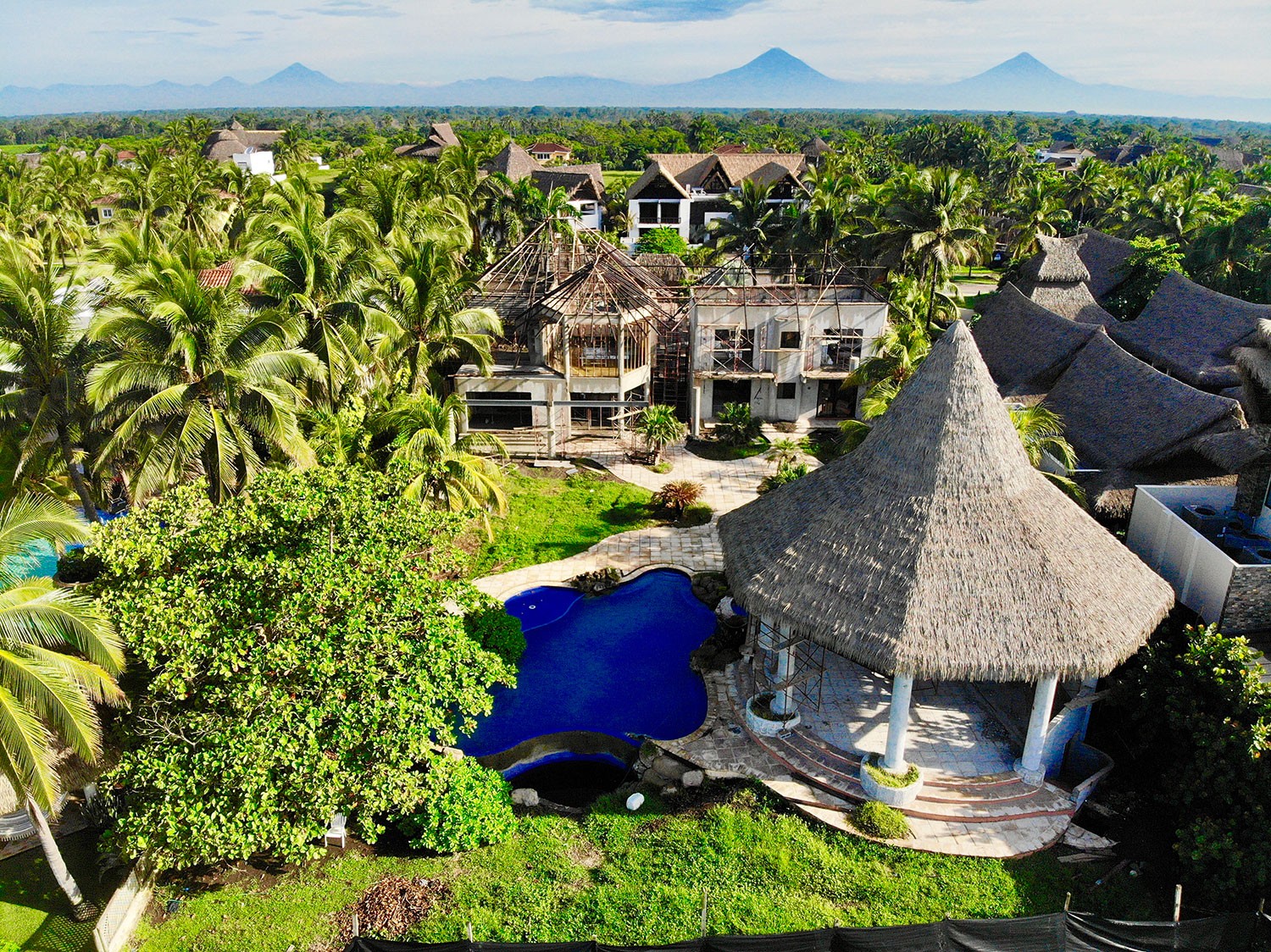
What is a Cone Roof?
Cone RoofWhen you’re considering synthetic thatch for your business, whether you operate a charming rental shop on the beach or a five-star resort, you need to know what type of roof you have—that’ll impact your decision on the best roofing materials to use.
So what if you have a cone roof?
What is a cone roof?
Also called a conical roof, a cone roof is circular on a flat plane and rises to a point. It forms a cone shape, although it can have virtually any pitch. A cone roof has parts similar to other types of roofs, such as hip roofs, shed roofs, and gable roofs.
They’ll typically have roof rafters and support columns, though they’ll be shaped differently and cut at different angles because the roof is conical in shape. Cone roofs can be made of metal, such as steel or aluminum, and are used in a wide range of applications.
The shape of the cone roof makes it particularly well-suited for industrial and commercial buildings, where it can provide a large amount of interior space without requiring extra support columns.
How is a cone roof constructed?
A cone roof is typically constructed using a series of curved panels that are welded together to form the cone shape. The panels are typically made of metal, such as steel or aluminum, and are designed to be lightweight and easy to install.
The panels are then attached to a series of support beams that run along the perimeter of the building. The support beams are typically made of steel or concrete and are designed to provide additional strength and stability to the roof.
What Are the Advantages of a Cone Roof?
There are several advantages to using a cone roof in a building.
More Interior Space
- First and foremost, the shape of the roof allows for a large amount of interior space without requiring more support columns. This can be particularly beneficial in industrial and commercial buildings, where a large amount of floor space is required.
Ventilation and HVAC Costs
- The cone shape of the roof provides excellent ventilation, which can help to reduce heating and cooling costs.
Strength and Durability
- Another advantage of a cone roof is its strength and durability. The shape of the roof allows it to withstand heavy loads, such as snow or wind, without collapsing. This makes it an ideal choice for buildings located in areas with harsh weather conditions.
Easy to Install and Maintain
- Cone roofs are also relatively easy to install and maintain. The panels used to construct the roof are designed to be lightweight and easy to work with, which can help to reduce installation time and costs. Plus, the panels are typically designed to be low-maintenance, which means that they require little upkeep over time.
Why Should You Consider a Cone Roof?
A cone roof is a type of roof that is shaped like an inverted cone. It is typically used in industrial and commercial buildings, where it can provide a large amount of interior space without requiring additional support columns. The shape of the roof also provides excellent ventilation and is incredibly strong and durable. If you are considering a new roof for your building, a cone roof is definitely worth considering.
Endureed Synthetic Thatch Products That Work Well With Cone Roofs
- Viva Series — An especially economical synthetic palm thatch.
- Capetown — A trimmed, coarsely textured, longer reed. Replicates African Yellow Grass or “Cape Reed” that replicates the typical African style thatching.
- Kilimanjaro — A heavy reed replicating a traditional weathered, Tanzanian cape reed roof.
- Somerset — A closely tapered, slightly weathered appearing shingle. Replicates a typical, hand trimmed European thatching.
- Kona — A combination of wide leaf and smaller grass reed. Replicates the look of Hawaiian “Pili Grass” and Asian Alang-Alang grass thatching.
- Bali — A finer, loosely tapered, slightly longer shingle designed to resemble the appearance of East Asian grass thatching.
Are You Considering Synthetic Thatch for Your Business?
We’d be happy to show you how Endureed can provide you with the perfect synthetic thatch roofing for your business.
Call us at 866-891-1509 or get in touch with us online to learn more. You can also view the technical specs on each of our roofing products by creating a free Endureed user account now.